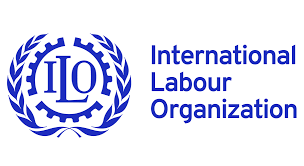International Labour Organization (ILO): Advancing Workers' Rights and Decent Work

In this blog post, we will explore the International Labour Organization (ILO), its purpose, establishment, location, significance, historical examples, and opportunities to join as staff or volunteer. The ILO plays a crucial role in promoting international labor standards, protecting workers' rights, and advocating for decent work worldwide.

The International Labour Organization (ILO) is a specialized agency of the United Nations, founded in 1919. It aims to promote social justice and internationally recognized labor rights. The ILO develops and upholds labor standards through its conventions and recommendations, which cover a wide range of topics including forced labor, child labor, workplace safety, freedom of association, and collective bargaining.

The ILO has its headquarters in Geneva, Switzerland. Its central location allows for close collaboration with other international organizations and provides a platform for governments, employers, and workers' representatives to engage in discussions and negotiations on labor-related issues.
Significance
Promotion of Decent Work: The ILO is committed to promoting decent work for all. It defines decent work as productive employment that offers fair wages, social protection, and respect for workers' rights. Through its programs and initiatives, the ILO aims to create an inclusive and equitable work environment where workers can enjoy rights, benefits, and opportunities for personal and professional development.

Setting International Labor Standards: The ILO develops and establishes international labor standards through its conventions and recommendations. These standards serve as guidelines for member states to shape their national labor laws and policies. By setting these standards, the ILO contributes to the improvement of working conditions, the protection of workers' rights, and the reduction of social and economic inequalities.
Worker Protection and Empowerment: The ILO plays a significant role in protecting workers' rights and advocating for their empowerment. It addresses issues such as forced labor, child labor, discrimination, and workplace safety. The ILO works with governments, employers' organizations, and trade unions to ensure that workers are treated fairly, have access to social protection, and are able to participate in social dialogue and collective bargaining.

Examples from History
Eight-Hour Workday: One of the notable achievements of the ILO is the establishment of the eight-hour workday. In the early 20th century, the ILO advocated for a standard eight-hour workday, which aimed to improve working conditions and provide workers with more leisure time. This initiative has had a profound impact on labor laws and practices around the world.
Elimination of Child Labor: The ILO has been at the forefront of the global fight against child labor. Through its conventions, recommendations, and programs, the ILO works to eradicate child labor and ensure that children are protected from exploitation and have access to education. The ILO's efforts have contributed to significant progress in reducing child labor globally.

Opportunities to Join
Employment: The ILO offers employment opportunities in various fields such as research, policy development, technical assistance, and program management. Interested individuals can explore job vacancies and application procedures on the ILO's official website under the "Employment" section.
Internships: The ILO provides internship opportunities for young professionals and students to gain practical experience and contribute to its work. Internships are available in different areas of the organization and offer valuable learning opportunities. Information about internships can be found on the ILO's website.

The International Labour Organization (ILO) plays a pivotal role in promoting international labor rights, setting labor standards, and advocating for decent work. Through its conventions, recommendations, and programs, the ILO addresses critical labor issues and strives to create a world where workers' rights are protected, and decent work is ensured for all. By joining the ILO as staff or volunteering, individuals can actively contribute to the organization's mission and make a positive impact on the lives of workers globally.
As we conclude, the International Labour Organization (ILO) stands as a beacon of hope for workers around the world. Through its commitment to promoting labor rights, setting international labor standards, and advocating for decent work, the ILO continues to shape the landscape of the global labor market. By addressing issues such as forced labor, child labor, workplace safety, and workers' rights, the ILO strives to create a fair and inclusive working environment where all individuals can thrive.

Whether through its historical achievements in establishing the eight-hour workday or its ongoing efforts to eliminate child labor, the ILO has demonstrated its significance in shaping labor laws and practices worldwide. By joining the ILO as staff or a volunteer, individuals can actively contribute to advancing workers' rights and promoting decent work for all.
Remember, the fight for social justice and fair labor practices is an ongoing journey, and the ILO remains at the forefront of this noble cause. Together, we can create a world where every worker is treated with dignity, respect, and fairness.
Sources
- International Labour Organization. (n.d.). Retrieved from https://www.ilo.org/
- What we do. (n.d.). Retrieved from https://www.ilo.org/global/about-the-ilo/what-we-do/lang--en/index.htm
- International Labour Standards. (n.d.). Retrieved from https://www.ilo.org/global/standards/lang--en/index.htm
- International Labour Organization. (2020). World of Work Report 2020: From the pandemic to a human-centered recovery. International Labour Office.
- ILO Centenary Declaration for the Future of Work. (2019). Retrieved from https://www.ilo.org/global/about-the-ilo/mission-and-objectives/WCMS_711416/lang--en/index.htm
- ILO Employment Opportunities. (n.d.). Retrieved from https://www.ilo.org/global/about-the-ilo/employment/lang--en/index.htm
- ILO Internship Programme. (n.d.). Retrieved from https://www.ilo.org/global/about-the-ilo/employment/internship-programme/lang--en/index.htm









